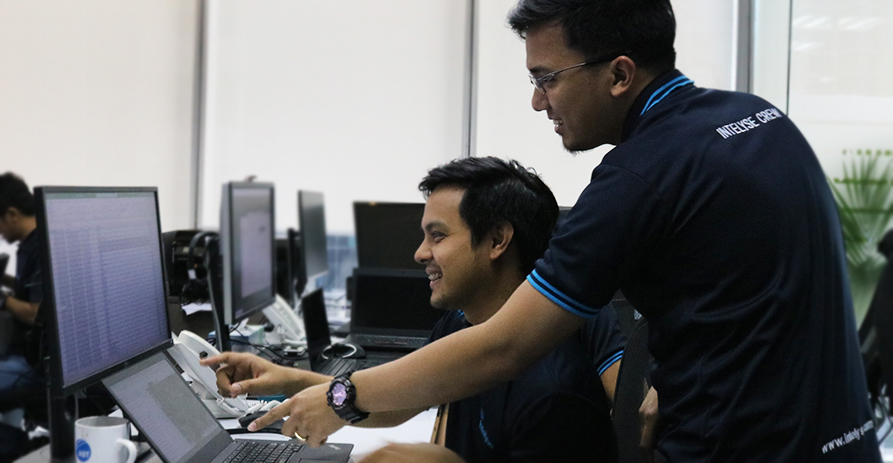When political violence engulfed Tripoli in 2019, Intelyse supported more than 20 clients to manage information flow, make informed decisions proactively, and maintain business continuity.
In April 2019, a complex and volatile situation developed in Libya’s capital Tripoli, as the opposed Eastern and Western Libyan blocs began fighting for control of the city. Within the span of just a few weeks, Eastern Libyan military commander Khalifa Haftar’s Libyan National Army (LNA) gained control over large parts of the country and marched on Tripoli, attacking the Government of National Accord (GNA).
The challenge: making informed decisions in extremely volatile situations
The build up of tensions and military actions across Libya was fed constantly by rumor, fake news and perceived threats. The start of military action was unexpected, coming just 10 days before a UN-backed conference which was supposed to lead to elections, meaning organizations operating in the region had to make informed decisions swiftly. The culmination was a sustained assault on areas of Tripoli, including indiscriminate shelling, destruction of civilian property, looting, abductions, and the displacement of thousands.[1]
Among those affected were more than 20 Intelyse clients with operations on the ground in Tripoli, including multi-national businesses, governments, large international NGOs, energy companies (oil and gas), engineering and construction companies, and security companies.
Our clients looked to us to provide the comprehensive risk analysis and actionable insight to underpin key business decisions: when to relocate staff, whether to suspend business operations, where to move their center of operations, and so on. By using scenario-based planning rather than unfounded predictions, we helped our clients keep their businesses going.
[1] Human Rights Watch, www.hrw.org/world-report/2019/country-chapters/libya

The Intelyse approach: real-time, accurate and proactive risk management
During times of major socio-political upheaval, we enable our clients to make proactive decisions based on accurate information and analysis, and by modeling different scenarios.
Establish a framework for proactive decision-making commensurate with risk
Making a decision early on is sensible from an enterprise resilience point of view. Intelyse’s systems provide clients with a framework that establishes pre-agreed actions when certain ‘trigger’ events occur. This advance crisis planning prevents panic from taking hold while helping businesses understand what their actions need to be, putting the necessary steps in place to implement them.
Our framework ensures businesses are prepared to manage risk as efficiently as possible. For example, it is often much cheaper and easier to use commercial flights to relocate staff and then bring them back when safe to do so or the situation is better understood. The alternative is to leave the decision too late, running the risk of commercial flights being grounded, causing the need for expensive chartered air or complex ground evacuation. Moving staff early as part of a comprehensive strategy can save time and money in the long run.
Intelyse had four ‘triggers’ of initial concern for clients in Libya, of which three were activated during the first 8 weeks of the situation. Following pre-established crisis plans, many of our clients relocated all non-essential staff within two to four weeks, either to locations such as Tunisia and Malta, or to family homes and towns within Tripoli and other parts of Libya. The remaining Intelyse ‘triggers’ were activated in due course and culminated in an attack on Tripoli’s airport that grounded all commercial flights.
Intelyse provided regular briefings on how the situation was evolving. This meant our clients were ready to return staff as soon as possible, while also keeping the skeleton staff that remained behind safe. By doing so, our clients never had to cease operations in Libya, maintaining business resilience during the conflict.
Providing comprehensive, neutral information
During the initial attacks on Tripoli, there was lots of confusion fueled by disinformation. Clients were hearing news about events exacerbated by rumors, gossip, WhatsApp groups, etc. A lot of information on the ground during conflicts is biased and based on perception not reality – information that has not been processed, verified, or analyzed.

Our goal is to provide neutral, accurate information that clients can rely on to inform critical business decision-making. Intelyse provided tracking of unrest across the capital, including highly granular maps marking attacks in near real-time. A consolidated round-up map was also provided at the end of each day. We used our analysis to forecast conflict trends, and to anticipate potential military breakthroughs. Our assessment in this case was that the conflict would quickly turn into a stalemate.
We offered a single source of truth for situational awareness, with the ability to temper corporate reactions based on neutral, central information. This meant clients could avoid overreaction based on hearsay or being blindsided by surprises.
Measured analysis for appropriate response
Business continuity was understandably a key concern for clients in Libya with people, investments, and long-term plans to protect. Our teams and local experts on the ground gave clients actionable insights on how to act and what was coming next.
For example, we were able to advise clients that the shelling, fighting and air raids were not affecting the predominantly expatriate-populated areas. As such, essential personnel could continue to run their business from these areas. By keeping staff on the ground throughout, our clients could minimize issues they might face at a distance, such as corruption and coercion. This meant that operations could continue while keeping staff safe.
Result
The first phase of the conflict in Tripoli lasted for nearly six months. Throughout this time, clients used our bespoke risk reporting and threat analysis to maintain operations. This meant they could even achieve business growth and loyalty within Libya during this period, through their commitment to their clients and projects.
As a risk advisory service, Intelyse provides neutral, informed, and nuanced risk management guidance with long-term thinking, to help our clients work out their best course of action. Embedding scenario-based planning into their day-to-day business enabled Intelyse’s clients to respond proactively to unfolding political unrest and prioritize their resources and teams effectively.
Organizations with serious ambitions in the region need access to timely risk reporting from a company with deep situational awareness. Only then can businesses move from defensive risk management to a resilient, solutions-driven approach in the face of geopolitical uncertainty.
For more information on how to develop a robust risk management strategy, contact us at +971 4 363 5392 or email info@intelyse.com.

